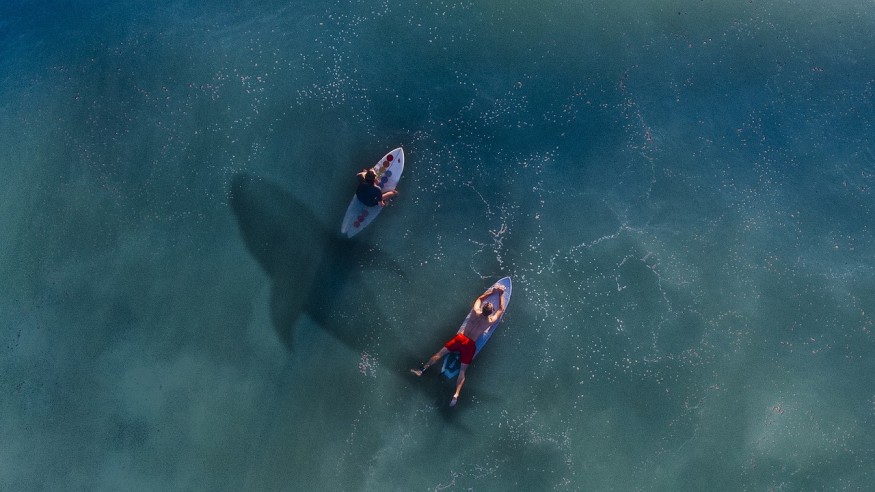Great white shark encounters are common than previously thought along California beaches, according to a new study led by scientists in the United States.
The researchers involved in the new research asserted that the meeting between the sharks and humans are increasing "nearly every day" in some beaches across the Golden State. However, the encounters do not necessarily equate to attacks, the study implies.
For decades, modern pop culture and mainstream movies have portrayed great whites as the apex predator of the ocean, with a thirst for human flesh.
Yet, marine scientists in previous years have clarified that humans are not on a shark's menu list. Despite our exclusion from their food chain, dangerous, fatal shark attacks have still occurred in the U.S. and other parts of the world.
Experts explain that such attacks on humans are unprovoked and caused by 'mistaken identity' as the ocean predators apparently deem swimming humans on the ocean's surface as their prey, including seals.
While incidents related to shark bites are isolated and placed into the 'rare statistics,' some reports indicate that our fear of great white sharks remain.
Great White Shark Encounters

In the study published on the journal PLOS ONE on June 2, researchers from the California State University Long Beach examined patterns of "overlapping habitat use" between juvenile white sharks and humans, who use the same area for recreational activities, along southern California beaches.
The research team focused on the area since it is being used by great white sharks as a nursing habitat, where young great whites spend their early years of life. The team observed that the local shark population is growing, acknowledging it is a positive news for the local marine ecosystem. This comes under the context that great white sharks are a threatened species globally.
Also Read : Dead Great White Shark Washed Ashore Into California Beach Killed During Fishing Activity
California Beaches Drone Surveillance
The team used commercial drones to conduce surveillance of 26 southern California beaches, ranging from San Diego to Santa Barbara, between January 2019 and March 2021.
Patrick Rex, a graduate student from the university's Department of Biological Sciences, told Newsweek that southern California is one of the most popular sites for ocean recreational activities, but he also said an increase in shark population in the state's coast heightens concern that it may lead to more shark bites.
To confirm the concern, Rex scanned the beaches using the drones to search for hotspots where people and juvenile great white sharks share. He found that both groups use the same beach almost daily and 97% of the time. The figure tells that there is a "high likelihood" that the marine animals are encountering beachgoers in southern California frequently each day.
The U.S. is the leading country with the highest number of shark bite incidents, with California only having four incidents in 2022, according to the Florida Museum's International Shark Attack File.
© 2025 NatureWorldNews.com All rights reserved. Do not reproduce without permission.





